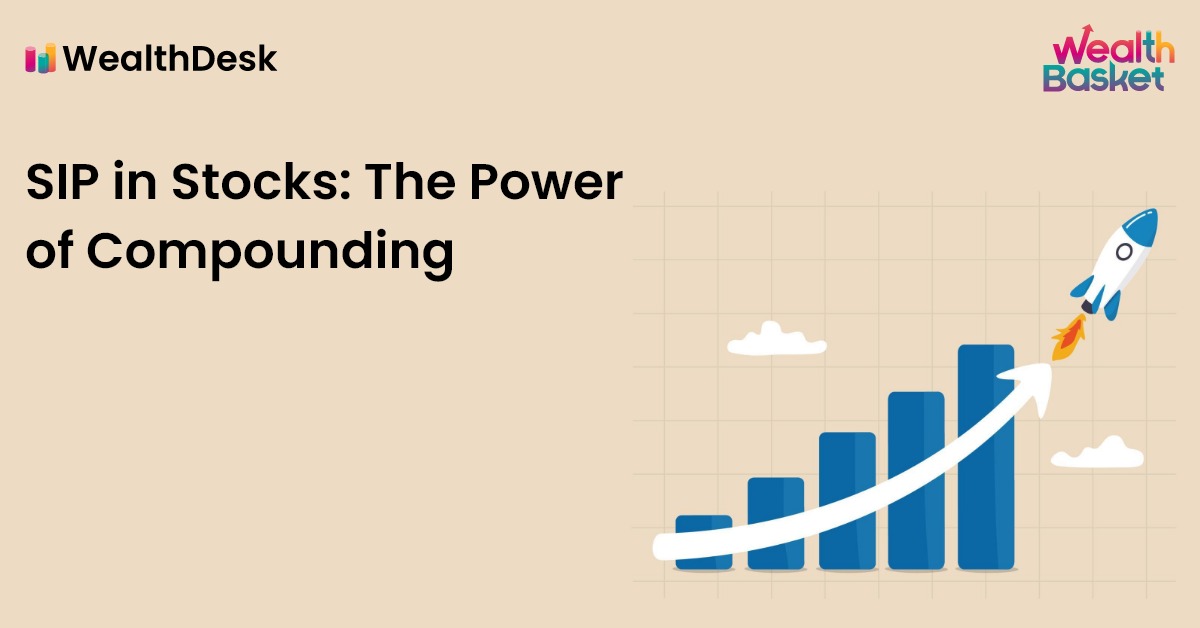Investors are well aware of the daily ups and downs in financial markets. How you react and act when your fund goes red reveals a lot about you as an investor. It’s important to understand that equity markets are notoriously volatile. Understanding what makes the markets unpredictable, as well as why they are falling, may hold the key to reducing your anxiety.
The question to examine is whether your fund’s performance reflects a fundamental shift that would warrant you terminating your SIP in the stock market or redeeming your contributions. What if there is a case of negative market mood, such as the current situation of rupee depreciation, crude oil price hikes, and possible pandemic-related developments, among other things?
When you are investing directly in equities via SIP and the market undergoes a bear run, it is always a stressful and emotional time; it is psychologically challenging to accept. We can only do our best to examine what we usually do during market downturns.
How Does SIP Investment Work?
Let’s look at how a SIP in the stock market works with the help of an illustration. Assume you earn ₹40,000 per month and set aside 10% of that for your monthly SIP mutual fund investment.
In June 2005, you started investing ₹4,000 per month in the XYZ fund. Every month, you invest ₹4,000 in the XYZ fund as part of this investment. One of the most significant benefits of SIP is the compounding power it provides.
Over time, the ₹4,000 that you invest in SIP grows into a sizable corpus. You would have invested ₹4,000 in the XYZ fund 120 times between June 2005 and June 2015. The total investment today would be ₹4.8 lakh (120*₹4,000).
If you compute the return on this investment at 12%, it would have risen to ~₹9.2 lakhs, nearly twice as much as your initial investment. Even if you adjust this for a 6% projected inflation rate, your wealth will grow to ~₹6.6 lakh in this time, representing a 50% increase in the principal invested.
How to Deal with SIP Investments if the Market is Volatile?
It is natural for investors to get worried about their SIP investments when the market is volatile. The most common reaction to such a situation is stopping or withdrawing your SIP investment. The crucial thing to keep in mind here is your goal. If your long-term goal is to build wealth, short-term market volatility should not bother you.
Let’s consider an example to understand this better. Your initial investment in January in SIP was ₹1000. It stayed the same till March. Now, in April, the value dipped to ₹750. In this situation, your stock value is lesser than your investment. Therefore, you are making a loss.
There are practically two things that you would consider doing:
- Sell off the stock
- Hold it a little longer and let the SIP bring down your average buying price
Now consider the SIP value remained at ₹750 for 2 months, and in July, the value shot to ₹2000.
That is a 100%+ return on your investment. Now recall, if you had sold off your holding, would you make such profits? No. It should be understood that investments are subjected to market risks. Getting rid of them is not always the solution if you are looking at long-term returns.
It would help to compare equity investments to investments in physical assets like gold to understand the ramifications of stopping your SIP in the stock market or investing when the market is down.
When the Stock Market Falls
You will lose ₹5,000 if you sell gold at ₹30,000 per 10 grams that you purchased for ₹35,000 per 10 grams. However, if you wait until gold prices rise to ₹40,000, you can sell it for a profit of ₹5,000.
Furthermore, instead of selling gold at ₹30,000 per 10 gram, you may get ₹15,000 by purchasing another 10 grams and then selling the 20-gram gold for ₹40,000 per 10 gram.
Taking cues from the above example, if the price of equities declines, you should invest more rather than redeem your shares. This is because redemption in a low market will turn a nominal loss into an actual loss. In the same way, you shouldn’t stop your SIP when the market is down.
As SIP invests the same amount at regular intervals, you will receive more units when the fund’s NAV is lower at a low market. Because a fund’s worth determines the product of its NAV and the number of units it holds (i.e., NAV x No. of units), the more units you have, the higher the fund’s value will be when the NAV rises in a rising market.
Should you Invest When the Market is Down?
To maximise the return on your equity mutual fund investments, you should never stop your SIP investment at a low market and, if possible, make an additional investment to purchase more units to take advantage of lower average pricing.
The volatility of the funds you have invested in can be difficult to bear. SIPs appear to end, and redemptions arise during volatile times, both exceptionally prematurely. According to behavioural scientists, investors are more affected by losses than profits.
When the markets are in a bear market, people tend to halt SIP investment or redeem the invested amount to avoid further losses. If you’re a long-term investor, though, volatility is your friend.
Let us use the following example of two investors who invested in the same SIP in the stock market.
- Investor A began a monthly SIP of ₹5,000 in the stock market Nifty Index on January 1, 2003, and has continued the same. His investment value/corpus will be around 41 lakhs on, say, October 8, 2018, whereas he invested only ₹9.50 lakhs during this period.
- On the other hand, Investor B began his SIP on January 1, 2003, but halted it during the financial crisis of 2008. His investment value/corpus will be about ₹21 lakhs as of our sample date (October 8, 2018), while the money he invested was ₹3.45 lakhs.
When we compare the two scenarios, we can reasonably assume that Investor A has generated an additional profit of roughly 20 lakhs by investing a few more lakhs in the dropping market while continuing SIP investment until today.
When the stock market falls, buying extra stocks could be a hidden gain. Yes, you read that correctly. When the stock market is down, opportunistic investors know it’s better to acquire supplies or invest in funds at a lower price (bear market) and sell or redeem them when the market is up.
Stick to your asset allocation and take advantage of the market’s dip as an opportunity to invest. However, please remember that this bear market isn’t going to last forever; what you’ll need is a well-diversified investment strategy.
Conclusion
You should avoid getting rid of your SIP investment during a stock market fall. While market downturns can be frightening, take a deep breath and remember that they will pass. This could be the most crucial aspect of your whole investment strategy in the long run.
Discover stocks that suit certain filter criteria and dive into details to check their WealthBaskets.
You could invest in professionally managed portfolios called WealthBaskets through WealthDesk, and benefit from lump sum and/or SIP investments. An investor should invest when the stock market is down to reap maximum benefit.
FAQs
When market circumstances get volatile, you may want to discontinue or redeem your SIP investment. The benefits of SIP, on the other hand, will only be available if you regularly invest, independent of market conditions.
Instead of focusing on market timing, investors should be disciplined and continue to invest in equity mutual funds regardless of market volatility. These short-term changes owing to market volatility have little impact on your SIP investment in the long run.
Short positions can be taken in numerous methods to profit from a falling market, including short selling, purchasing shares of an inverse ETF, or purchasing speculative put options, all of which will gain value as the demand decreases.
Market risks are present when investing in mutual funds through a SIP. The risk with SIPs, on the other hand, can be managed and decreased by the fund managers and fund houses.


















